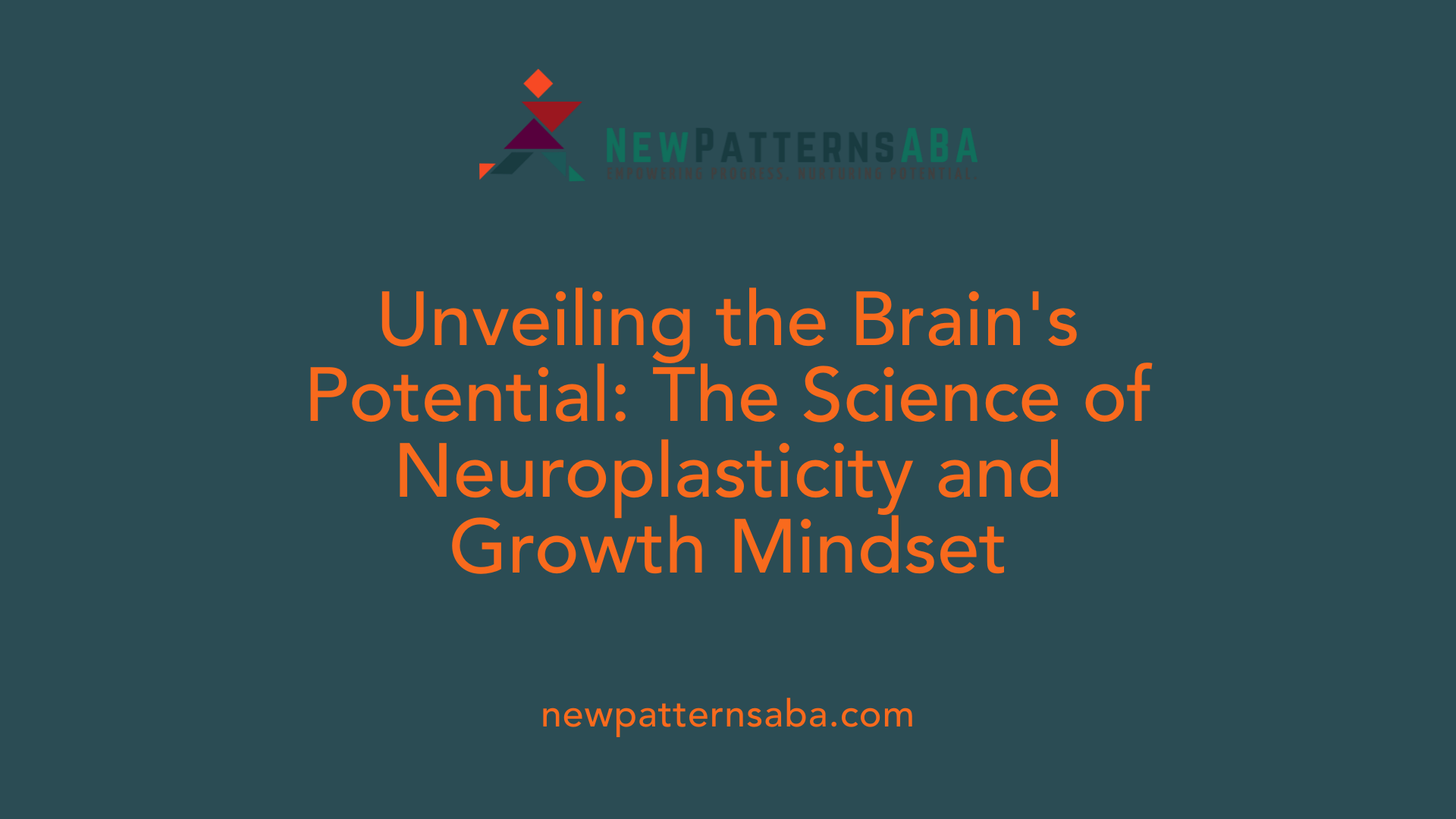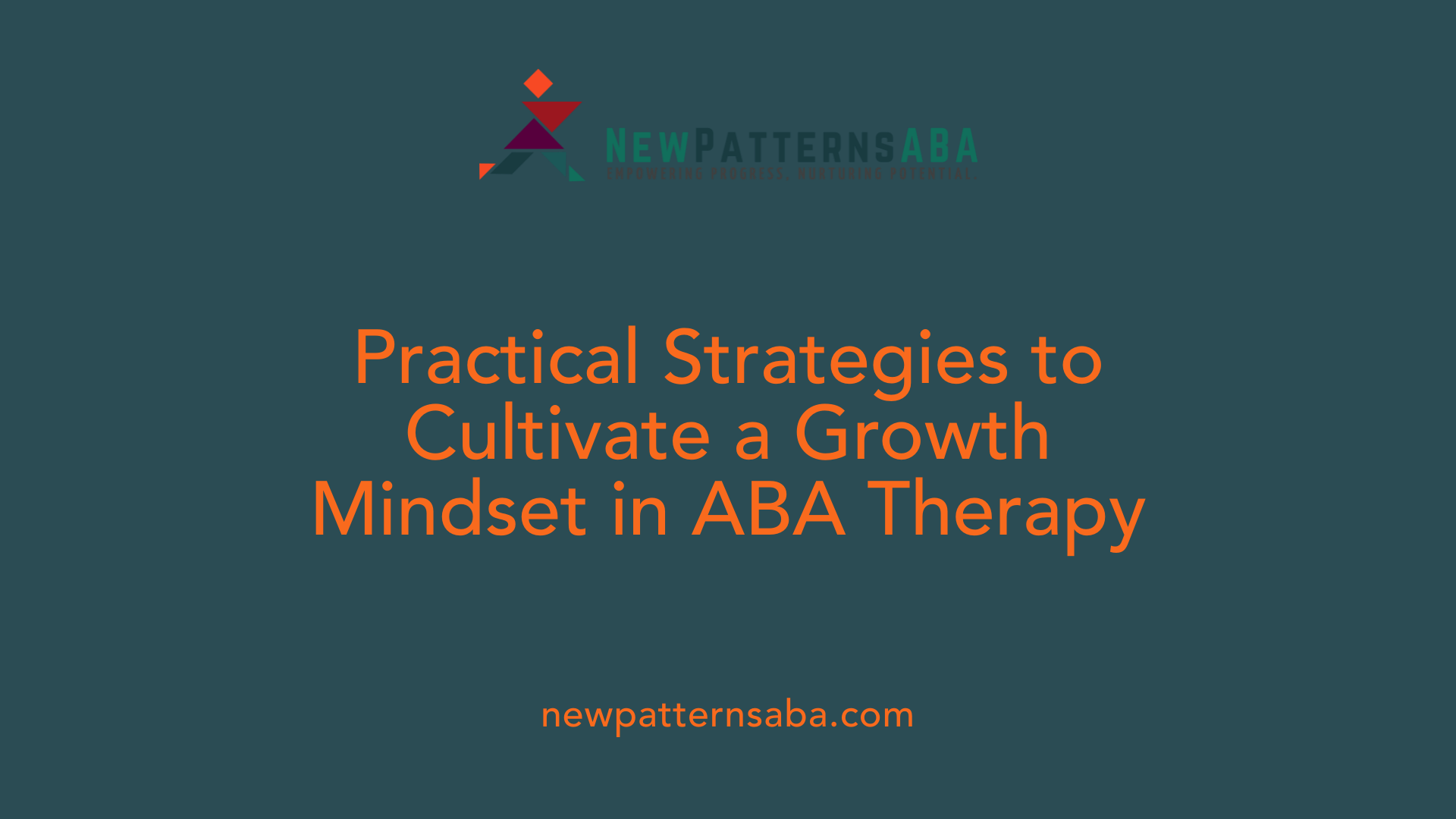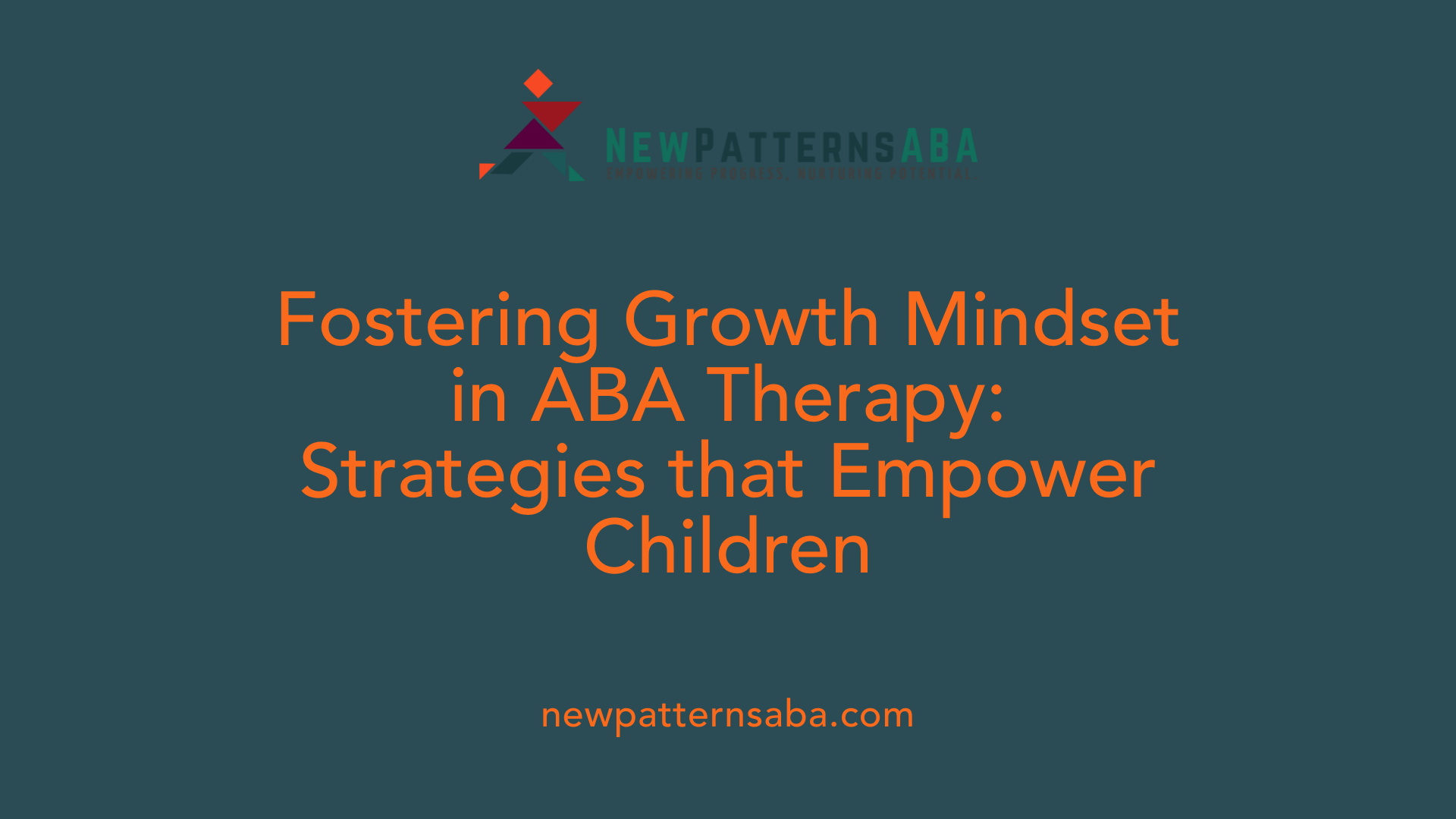Understanding the Foundations of Growth Mindset and its Significance in Child Development
A growth mindset, a term coined by psychologist Carol Dweck, is the belief that abilities and intelligence can be developed through effort, perseverance, and learning. This mindset contrasts with a fixed mindset, where abilities are considered innate and immutable. Cultivating a growth mindset in children is crucial as it fosters resilience, motivation, and a positive attitude toward learning, ultimately leading to better academic achievement, emotional health, and lifelong success. Children with a growth mindset are more likely to embrace challenges, learn from feedback, and persevere through difficulties, behaviors that are vital for their comprehensive development.
The Science Behind Growth Mindset and Neuroplasticity

What is a growth mindset, and why is it important for children's development?
A growth mindset is the belief that intelligence and skills can develop over time through effort, practice, and perseverance. Children with this outlook see challenges and setbacks as opportunities to learn, rather than as signs of failure. Encouraging this mindset helps build resilience, motivation, and a positive attitude toward learning. Research indicates that children who embrace a growth mindset tend to achieve more academically, develop better problem-solving skills, and enjoy greater happiness and health. Fostering this perspective supports their long-term development, emotional resilience, and the capacity to overcome obstacles in various areas of life.
Teaching children about neuroplasticity and brain growth mechanisms
Explaining neuroplasticity—the brain's ability to change and adapt—is a powerful way to promote a growth mindset. When children understand that their brains actually grow when they solve problems or tackle difficult tasks, it makes the process of learning more tangible. Teaching about brain plasticity involves sharing how effort and continuous practice can physically alter neural connections, strengthening skills and abilities. This scientific insight helps children see that their efforts are meaningful and that their potential is not limited by innate qualities. Media like Sesame Street and educational programs can introduce these ideas in accessible ways.
The impact of effort and perseverance on brain development
Effort and perseverance are not just abstract concepts; they directly influence brain development. When children persist in learning new skills, their brains form stronger connections—an outcome supported by psychological and neurological research. By praising effort rather than innate traits, parents and teachers can reinforce this relationship between effort and growth. Using encouraging words like "not good at X yet"—adding the word "yet"—reminds children that improvement is always possible. Ultimately, embracing effort and resilience cultivates a growth mindset, helping children develop stronger, more flexible brains and a love for learning that endures throughout their lives.
| Concept | Explanation | Impact on Development |
|---|---|---|
| Neuroplasticity | Brain's ability to change and grow | Facilitates skill acquisition and recovery from setbacks |
| Growth Mindset | Belief that abilities can be developed | Encourages persistence, learning from mistakes, and resilience |
| Effort | The work children put into tasks | Strengthens neural pathways and improves skills |
| Resilience | Ability to bounce back from adversity | Promotes emotional health and lifelong adaptability |
Harnessing the principles of neuroplasticity and a growth mindset empowers children to reach their full potential, shaping their academic success, emotional resilience, and overall well-being.
Strategies to Promote a Growth Mindset Through ABA Therapy
 ABA therapy offers effective ways to nurture a growth mindset in children by focusing on effort, persistence, and learning. One fundamental approach is positive reinforcement that emphasizes the importance of effort and process rather than just outcomes. When children receive praise for trying hard or using effective strategies, they learn that effort fosters improvement.
ABA therapy offers effective ways to nurture a growth mindset in children by focusing on effort, persistence, and learning. One fundamental approach is positive reinforcement that emphasizes the importance of effort and process rather than just outcomes. When children receive praise for trying hard or using effective strategies, they learn that effort fosters improvement.
Modeling growth mindset behaviors within therapy sessions and at home is equally vital. Therapists and parents can demonstrate resilience by openly discussing mistakes, learning from setbacks, and using phrases like 'not good at this yet' to promote optimism. Introducing concepts like 'yet' normalizes challenges and encourages children to persevere.
Creating opportunities for children to face appropriately challenging tasks helps develop their persistence and resilience. These challenges should be incremental, giving children a sense of achievement as they overcome each hurdle. This process teaches that difficulties are part of learning and growth.
Incorporating goal setting and self-reflection at the end of therapy sessions helps children recognize their progress and understand that effort leads to skill development. Goals can be tailored to each child's abilities, allowing them to experience success and boost confidence.
By fostering a supportive environment that values effort, persistence, and progress, ABA therapy can significantly influence children’s beliefs about their capabilities, leading to increased motivation, resilience, and a healthier, growth-oriented outlook.
| Strategy | Implementation Examples | Expected Outcomes |
|---|---|---|
| Using positive reinforcement to emphasize effort | Praise efforts and strategies, not just correct answers | Increased perseverance and motivation |
| Modeling growth mindset behaviors | Sharing personal learning struggles and successes | Children learn resilience and adaptive skills |
| Introducing 'yet' in language | Saying 'not good at this yet' during struggles | Normalizes setbacks and encourages persistence |
| Creating challenge opportunities | Designing tasks that require effort and problem-solving | Develops resilience and confidence |
| Goal setting and self-reflection | Discussing progress and next steps after tasks | Promotes self-awareness and motivation |
Research-backed strategies like these, combined with ongoing parental and therapist support, help children develop a resilient, growth-oriented belief system that can lead to lifelong benefits.
Implementing Growth Mindset Principles in ABA Therapy for Children with Special Needs

How can ABA therapy support children in developing a growth mindset?
ABA therapy plays a significant role in nurturing a child's growth mindset by emphasizing that abilities can be improved with effort and practice. Therapists often reinforce this belief by praising efforts and persistence rather than innate traits like intelligence. For example, they might say, "You worked really hard on that task," instead of "You're so smart." This focus encourages children to see challenges as opportunities for growth.
In addition, ABA techniques promote resilience by framing mistakes as essential to learning. When children encounter difficulties, therapists can help them view setbacks as normal parts of development. Introducing concepts like neuroplasticity—how the brain changes and adapts—further supports this mindset. This understanding helps children realize that their skills can develop over time.
Goals are often set collaboratively, which fosters motivation and a sense of progress. Children are encouraged to celebrate small successes, reinforcing their confidence in their ability to grow. Overall, ABA therapies customized to individual needs can strongly promote a positive attitude toward learning and resilience.
Real-Life Success Stories and Practical Approaches in ABA Therapy

How does ABA therapy support the development of a growth mindset in children?
ABA, or Applied Behavior Analysis, offers tailored, evidence-based strategies that effectively foster a child's growth mindset. Through positive reinforcement, visual cues, and role-playing, children learn to gain new skills, improve communication, and develop social abilities.
Are there success stories or approaches in ABA therapy that effectively contribute to a child's mindset development?
Yes, numerous real-world examples demonstrate how ABA therapy helps children embrace challenges and learn from experiences. For instance, children who initially struggled with social interactions often show increased confidence and resilience after consistent ABA interventions. Techniques such as using picture exchange communication systems (PECS) and social skills training help children understand that effort and practice can lead to improvement.
Examples of children benefiting from ABA's growth-oriented methods
| Child | Challenge Area | ABA Approach Used | Outcome | Additional Notes |
|---|---|---|---|---|
| Liam (7) | Social interaction | Role-playing, social stories, reinforcement | Increased participation and confidence | Became more willing to initiate play |
| Sofia (5) | Communication skills | PECS, modeling, positive reinforcement | Improved expressive language | Started asking for help instead of acting out |
| Ethan (9) | Self-regulation | Visual schedules, self-monitoring techniques | Better emotional regulation | Reduced tantrums and frustration episodes |
How do these approaches instill a growth mindset?
By emphasizing effort, progress, and learning from mistakes, ABA strategies teach children that abilities can develop over time. Success stories show children responding well to praise for actions like trying hard, instead of just innate traits, encouraging persistence and resilience.
Role of families and therapists in fostering a growth mindset
Family involvement is crucial. Parents are trained to use reinforcement and encouragement strategies at home, reinforcing progress made during therapy. Therapists consistently monitor and adjust approaches to suit each child's evolving needs, ensuring sustained growth and positive self-beliefs.
Additional resources for understanding success in ABA and growth mindset
For those interested in more success stories and innovative approaches, searching terms like 'Success stories of growth mindset development in ABA therapy' can provide inspiring examples. The combination of structured ABA techniques and a focus on effort and resilience creates a foundation for children to thrive both academically and socially.
Fostering a Lifelong Love of Learning and Resilience
Ultimately, ABA therapy offers a powerful, evidence-based pathway for children to develop a growth mindset. Through tailored interventions that emphasize effort, resilience, and continual learning, children can overcome challenges, build confidence, and achieve a greater sense of independence. When combined with parental and community support, ABA not only improves functional skills but also cultivates the mindset needed for lifelong growth, happiness, and success.
References
- Growth Mindset: Developing Your Child's Resiliency
- How to Encourage a Growth Mindset in Your Child - TherapyWorks
- Modeling Resilience And Growth Mindset For Your Child
- How ABA Therapy Can Support Your Child's Development
- Enhancing Social Skills Through ABA Therapy
- How ABA Therapy Helps With Social Skills
- Fostering Meaningful Connections: Social Skills Development
- Benefits of ABA therapy: 4 benefits you should know





